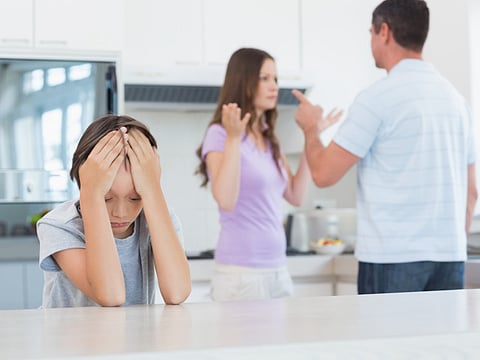Parental guidance: Reflect on your own childhood
Sunaina Vohra helps you keep parenting sane and simple, and guides you to trust your intuition

Recently I did a refresher on the first Master Coach training I had attended six years ago. At that time my focus was to change the world. As I stepped into coaching adults, as soon as they benefited from the sessions they wondered out aloud how beneficial it would be for their kids to be exposed to the same coaching tools. They imagined that if their kids could conquer their weaknesses and know the tools to deal with life’s challenges at an early age then they would avoid the struggles of adulthood that they had faced.
Parents whether they are eating their child’s favourite dessert or overcoming their own struggles through coaching, want to always pass on the sweet experiences to their child. It is this message from the majority of the adults I coached in the first couple of months of starting my practice that took me to the path of working with both children and parents.
As I sat in training once again focusing on the lessons being taught and demonstrations conducted with participants it dawned on me how, a lot of the issues adults face in later years originate in their childhood. Whatever the pain one suffered in adulthood – emotional, physical or mental – when the participants were asked what was their first earliest memory related to the said issue, in majority of the cases it could be found in their childhood.
The adult participants of the Master Coach training cited reasons ranging from the feeling of not being good enough, separation of parents, comparison to siblings, forced to pursue alternate professions to pressure of expectations. One lady who suffered from poor eyesight went back to the time when her parents quarrelled and she was a hapless witness. She chose to blur out that negativity in her environment. Another participant who kept changing jobs had been bullied often in school and was made to change classes. Yet another participant suffered a string of broken relationships because his mother left him when he was a toddler and he blamed himself for not being good enough.
If as a child, you got the belt rather than a loving embrace; labelled good-for-nothing rather than encouraged; punished for being honest rather than lauded for it; hushed when you spoke up you were hushed rather than being heard – as adults it is easier to understand your current issues or struggles as having an origin in childhood experiences at home or school.
Yet when it comes to the child, these parents blame the child for his shortcomings, not realising their own contribution to it. It is much easier for us to blame our child’s issues onto his peer group, school, media, movies and the internet, and much tougher to look at how possibly we could take responsibility for our child’s shape up. As parents are part of the problem, their view cannot be as objective as that of someone else who has a neutral view of the situation. If you find yourself blaming your child or his peers, reflect back on the areas you struggled as an adult and where the origins of those issues lie. That might help you understand your child better.
— Sunaina Vohra is a certified Youth and Family Life Coach at Athena Life Coaching in Dubai. For more information log on to athenalifecoaching.com or call 056-1399033. This is an interactive column on parenting skills and child behaviour. If you have a query, write to tabloid@gulfnews.com



